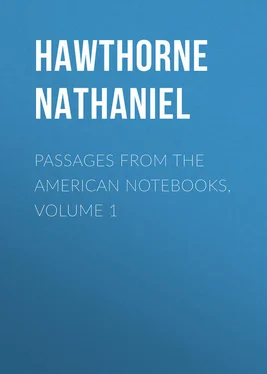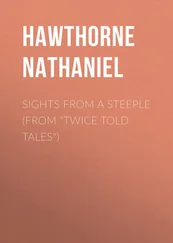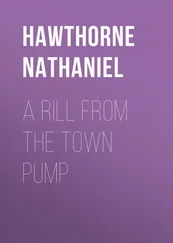Nathaniel Hawthorne - Passages from the American Notebooks, Volume 1
Здесь есть возможность читать онлайн «Nathaniel Hawthorne - Passages from the American Notebooks, Volume 1» — ознакомительный отрывок электронной книги совершенно бесплатно, а после прочтения отрывка купить полную версию. В некоторых случаях можно слушать аудио, скачать через торрент в формате fb2 и присутствует краткое содержание. Жанр: literature_19, foreign_antique, foreign_prose, на английском языке. Описание произведения, (предисловие) а так же отзывы посетителей доступны на портале библиотеки ЛибКат.
- Название:Passages from the American Notebooks, Volume 1
- Автор:
- Жанр:
- Год:неизвестен
- ISBN:нет данных
- Рейтинг книги:5 / 5. Голосов: 1
-
Избранное:Добавить в избранное
- Отзывы:
-
Ваша оценка:
- 100
- 1
- 2
- 3
- 4
- 5
Passages from the American Notebooks, Volume 1: краткое содержание, описание и аннотация
Предлагаем к чтению аннотацию, описание, краткое содержание или предисловие (зависит от того, что написал сам автор книги «Passages from the American Notebooks, Volume 1»). Если вы не нашли необходимую информацию о книге — напишите в комментариях, мы постараемся отыскать её.
Passages from the American Notebooks, Volume 1 — читать онлайн ознакомительный отрывок
Ниже представлен текст книги, разбитый по страницам. Система сохранения места последней прочитанной страницы, позволяет с удобством читать онлайн бесплатно книгу «Passages from the American Notebooks, Volume 1», без необходимости каждый раз заново искать на чём Вы остановились. Поставьте закладку, и сможете в любой момент перейти на страницу, на которой закончили чтение.
Интервал:
Закладка:
Coming to the Mansion House about supper-time, we found somewhat of a concourse of people, the Governor and Council being in session on the subject of the disputed territory. The British have lately imprisoned a man who was sent to take the census; and the Mainiacs are much excited on the subject. They wish the Governor to order out the militia at once, and take possession of the territory with the strong hand. There was a British army-captain at the Mansion House; and an idea was thrown out that it would be as well to seize upon him as a hostage. I would, for the joke's sake, that it had been done. Personages at the tavern: the Governor, somewhat stared after as he walked through the bar-room; Councillors seated about, sitting on benches near the bar, or on the stoop along the front of the house; the Adjutant-General of the State; two young Blue-Noses, from Canada or the Provinces; a gentleman "thumbing his hat" for liquor, or perhaps playing off the trick of the "honest landlord" on some stranger. The decanters and wine-bottles on the move, and the beer and soda founts pouring out continual streams, with a whiz. Stage-drivers, etc., asked to drink with the aristocracy, and mine host treating and being treated. Rubicund faces; breaths odorous of brandy-and-water. Occasionally the pop of a champagne cork.
Returned home, and took a lesson in French of Mons. S – . I like him very much, and have seldom met with a more honest, simple, and apparently so well-principled a man; which good qualities I impute to his being, by the father's side, of German blood. He looks more like a German – or, as he says, like a Swiss – than a Frenchman, having very light hair and a light complexion, and not a French expression. He is a vivacious little fellow, and wonderfully excitable to mirth; and it is truly a sight to see him laugh; – every feature partakes of his movement, and even his whole body shares in it, as he rises and dances about the room. He has great variety of conversation, commensurate with his experiences in life, and sometimes will talk Spanish, ore rotundo, – sometimes imitate the Catholic priests, chanting Latin songs for the dead, in deep, gruff, awful tones, producing really a very strong impression, – then he will break out into a light, French song, perhaps of love, perhaps of war, acting it out, as if on the stage of a theatre: all this intermingled with continual fun, excited by the incidents of the passing moment. He has Frenchified all our names, calling B – Monsieur Du Pont, myself M. de L'Aubepine, and himself M. le Berger, and all, Knights of the Round-Table. And we live in great harmony and brotherhood, as queer a life as anybody leads, and as queer a set as may be found anywhere. In his more serious intervals, he talks philosophy and deism, and preaches obedience to the law of reason and morality; which law he says (and I believe him) he has so well observed, that, notwithstanding his residence in dissolute countries, he has never yet been sinful. He wishes me, eight or nine weeks hence, to accompany him on foot to Quebec, and then to Niagara and New York. I should like it well, if my circumstances and other considerations would permit. What pleases much in Mons. S – is the simple and childlike enjoyment he finds in trifles, and the joy with which he speaks of going back to his own country, away from the dull Yankees, who here misunderstand and despise him. Yet I have never heard him speak harshly of them. I rather think that B – and I will be remembered by him with more pleasure than anybody else in the country; for we have sympathized with him, and treated him kindly, and like a gentleman and an equal; and he comes to us at night as to home and friends.
I went down to the river to-day to see B – fish for salmon with a fly, – a hopeless business; for he says that only one instance has been known in the United States of salmon being taken otherwise than with a net. A few chubs were all the fruit of his piscatory efforts. But while looking at the rushing and rippling stream, I saw a great fish, some six feet long and thick in proportion, suddenly emerge at whole length, turn a somerset, and then vanish again beneath the water. It was of a glistening, yellowish brown, with its fins all spread, and looking very strange and startling, darting out so lifelike from the black water, throwing itself fully into the bright sunshine, and then lost to sight and to pursuit. I saw also a long, flat-bottomed boat go up the river, with a brisk wind, and against a strong stream. Its sails were of curious construction: a long mast, with two sails below, one on each side of the boat, and a broader one surmounting them. The sails were colored brown, and appeared like leather or skins, but were really cloth. At a distance, the vessel looked like, or at least I compared it to, a monstrous water-insect skimming along the river. If the sails had been crimson or yellow, the resemblance would have been much closer. There was a pretty spacious raised cabin in the after part of the boat. It moved along lightly, and disappeared between the woody banks. These boats have the two parallel sails attached to the same yard, and some have two sails, one surmounting the other. They trade to Waterville and thereabouts, – names, as "Paul Pry," on their sails.
Saturday, July 15th. – Went with B – yesterday to visit several Irish shanties, endeavoring to find out who had stolen some rails of a fence. At the first door at which we knocked (a shanty with an earthen mound heaped against the wall, two or three feet thick), the inmates were not up, though it was past eight o'clock. At last a middle-aged woman showed herself, half dressed, and completing her toilet. Threats were made of tearing down her house; for she is a lady of very indifferent morals, and sells rum. Few of these people are connected with the mill-dam, – or, at least, many are not so, but have intruded themselves into the vacant huts which were occupied by the mill-dam people last year. In two or three places hereabouts there is quite a village of these dwellings, with a clay and board chimney, or oftener an old barrel, smoked and charred with the fire. Some of their roofs are covered with sods, and appear almost subterranean. One of the little hamlets stands on both sides of a deep dell, wooded and bush-grown, with a vista, as it were, into the heart of a wood in one direction, and to the broad, sunny river in the other: there was a little rivulet, crossed by a plank, at the bottom of the dell. At two doors we saw very pretty and modest-looking young women, – one with a child in her arms. Indeed, they all have innumerable little children; and they are invariably in good health, though always dirty of face. They come to the door while their mothers are talking with the visitors, standing straight up on their bare legs, with their little plump bodies protruding, in one hand a small tin saucepan, and in the other an iron spoon, with unwashed mouths, looking as independent as any child or grown person in the land. They stare unabashed, but make no answer when spoken to. "I've no call to your fence, Misser B – ." It seems strange that a man should have the right, unarmed with any legal instrument, of tearing down the dwelling-houses of a score of families, and driving the inmates forth without a shelter. Yet B – undoubtedly has this right; and it is not a little striking to see how quietly these people contemplate the probability of his exercising it, – resolving, indeed, to burrow in their holes as long as may be, yet caring about as little for an ejectment as those who could find a tenement anywhere, and less. Yet the women, amid all the trials of their situation, appear to have kept up the distinction between virtue and vice; those who can claim the former will not associate with the latter. When the women travel with young children, they carry the baby slung at their backs, and sleeping quietly. The dresses of the new-comers are old-fashioned, making them look aged before their time.
Читать дальшеИнтервал:
Закладка:
Похожие книги на «Passages from the American Notebooks, Volume 1»
Представляем Вашему вниманию похожие книги на «Passages from the American Notebooks, Volume 1» списком для выбора. Мы отобрали схожую по названию и смыслу литературу в надежде предоставить читателям больше вариантов отыскать новые, интересные, ещё непрочитанные произведения.
Обсуждение, отзывы о книге «Passages from the American Notebooks, Volume 1» и просто собственные мнения читателей. Оставьте ваши комментарии, напишите, что Вы думаете о произведении, его смысле или главных героях. Укажите что конкретно понравилось, а что нет, и почему Вы так считаете.












